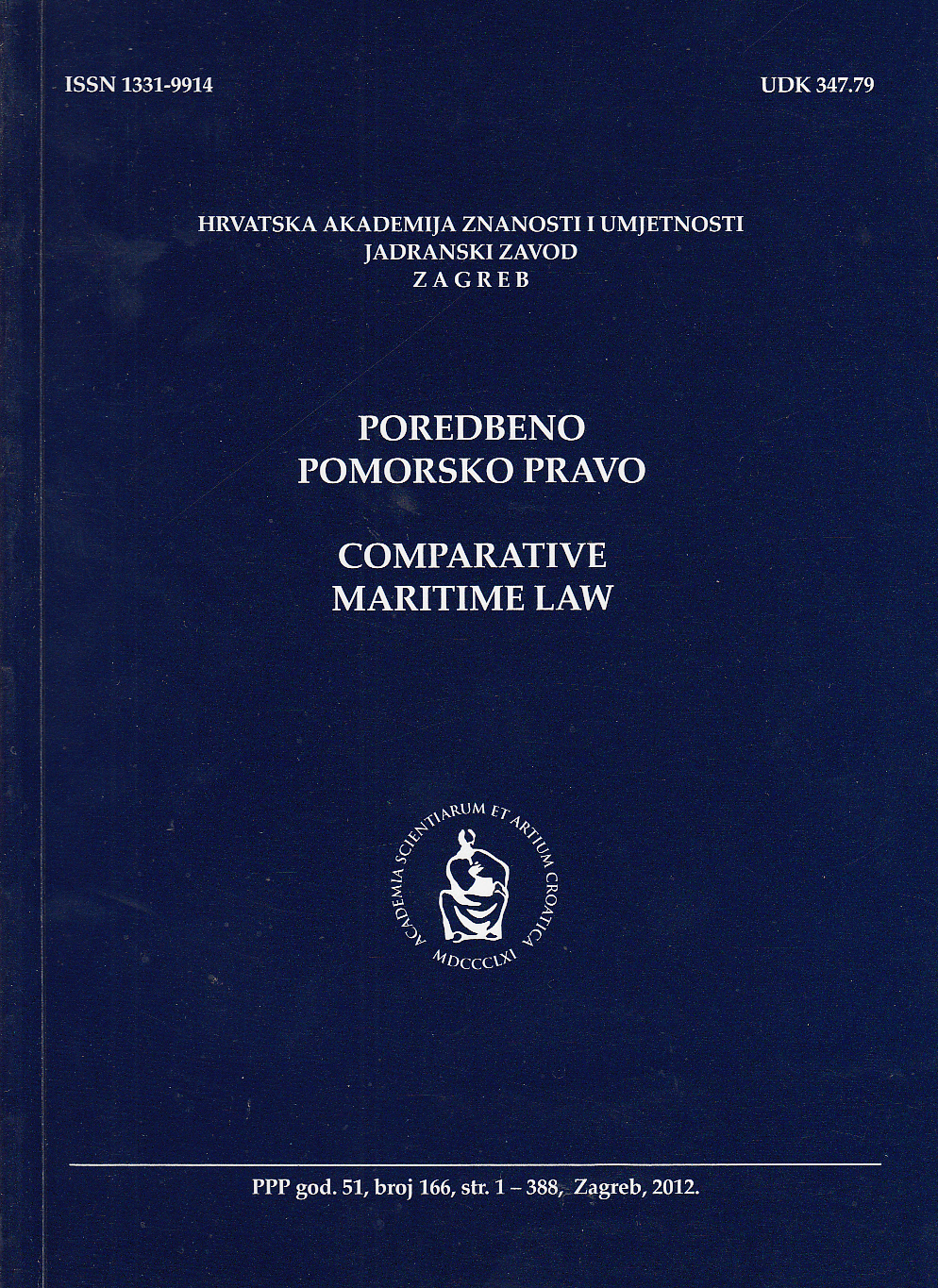Privremena mjera zaustavljanja broda u hrvatskom pravu : de lege lata i de lege ferenda rješenja
Ship arrest in the Croatian law : De lege lata and de lege ferenda solutions
Author(s): Ante Vuković, Dejan BodulSubject(s): Maritime Law, Commercial Law
Published by: Hrvatska akademija znanosti i umjetnosti
Keywords: ship arrest - preliminary measures;Croatian law;
Summary/Abstract: Security measures, in various forms, have found their place in a number of legal disciplines, including the maritime procedural law. One of the security measures is the temporary measure of ship arrest, which will be the subject-matter of this paper. This security measure is undoubtedly of great importance and it has perhaps the greatest value in relation to other security measures available to the proposer of security measures, since it precedes the taking of all other temporary measures. Attention will be focused on the procedure of determining the measure to arrest the ship and on the problems that may arise or have already arisen in the determination of case law. Relevant legislative regulation of the issue through the history and legal sources governing this issue will be briefly presented at the beginning of the paper. In the central part of the paper the procedural elements of the institute will be discussed, bearing in mind the fact that the sources of law governing the institute, although they contain procedural provisions, do not regulate the whole process of securing the temporary measure of ship arrest, which complicates treatment and enforcement and makes the procedure extremely complex. Namely, the International Convention for the Unification of Certain Rules Relating to the Arrest of Sea-Going Vessels (Official Gazette - International Treaties, No. 1/92 - hereinafter: The Convention of 1952), from the standpoint of procedural provisions, does not regulate all areas, but it refers to the application of the law of the state in which ship arrest was required (lex fori). In the Republic of Croatia this is regulated by the Maritime Code (Official Gazette, Nos 181/04, 76/07, 146/08 and 61/11), which also contains blanket provisions (Art. 841, paras 3. and 5.) according to which the provisions of the Enforcement Act should be applied (Official Gazette, Nos 57/96, 29/99, 42/00, 173/03, 194/03, 151/04, 88/05, 121/05 and 67/08). Article 19, paragraph 1 of the Enforcement Act indicates the corresponding application of the Civil Procedure Act (Official Gazette, Nos 53/91, 91/92, 58/93, 112/99, 88/01, 117/03, 88/05, 02/07, 84/08, 123/08 and 57/11). The final part of the paper, in addition to the analysis of the relevant characteristics of the Institute, points out problems and offers possible solutions. Some of these solutions follow those that had been proposed in the International Convention on the Arrest of Ships (Geneva 1999), which entered into force on 24 September 2011 (the Republic of Croatia has not ratified it).
Journal: Poredbeno pomorsko pravo
- Issue Year: 51/2012
- Issue No: 166
- Page Range: 257-294
- Page Count: 38
- Language: Croatian

